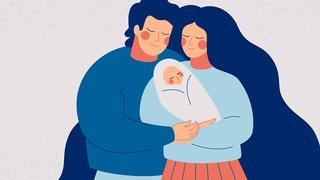
Chronic stress can negatively impact fertility in both men and women by disrupting hormonal balance, affecting ovulation and sperm quality, and promoting unhealthy lifestyle choices that further impair reproductive health |Image used for representational purpose only
| Photo Credit: Getty Images/iStockphoto
“We increasingly see stress presenting not just as an emotional state, but as a physiological disruptor affecting ovulation and menstrual cycles,” said Dakshayani D., senior consultant, Department of Obstetrics and Gynaecology, Varam IVF, MGM Healthcare, Chennai, during a recent session of The Hindu’s ongoing health webinar series titled, ‘Does stress impact fertility in young people?’.
“It often appears alongside conditions like PCOS and irregular cycles, especially among young urban women managing demanding schedules and limited rest,” she noted, underscoring the importance of early awareness and lifestyle adjustments.
Highlighting the male perspective, Sanjay Prakash J., clinical lead – Andrology, Asian Institute of Nephrology and Urology (AINU), said, “Stress alters hormonal balance, including testosterone levels, and this can reduce sperm quality and sexual function.” He observed that young men commonly dismiss stress as temporary or psychological, delaying medical consultation even when sleep disruption, anxiety and sedentary work patterns are clearly visible. Dr. Sanjay recalled a case where guiding a male partner to regulate sleep and reduce work-related strain led to significant improvement in reproductive parameters for the couple.
The session examined how chronic and unmanaged stress functions beyond mood or emotional health, influencing hormonal pathways, metabolic functioning, and reproductive processes in both men and women. While stress is not identified as a direct cause of infertility, the World Health Organization has recognised chronic stress as a public health concern, noting its cumulative impact on reproductive wellbeing. In younger adults, day-to-day stressors, long work hours, and irregular lifestyle patterns can interfere with menstrual regularity, ovulation and sperm parameters, thereby shaping fertility outcomes.
Questions from participants covered work–life balance, sleep hygiene and when individuals should seek clinical intervention. Both speakers emphasised that reproductive health must be understood as interconnected with overall physical and emotional wellness, rather than as an isolated issue.
The session was moderated by Athira Elssa Johnson, senior reporter, The Hindu.
The webinar can be viewed at https://www.youtube.com/watch?v=d5g7cIkde9o
Published – November 09, 2025 11:42 pm IST
















Leave a Reply